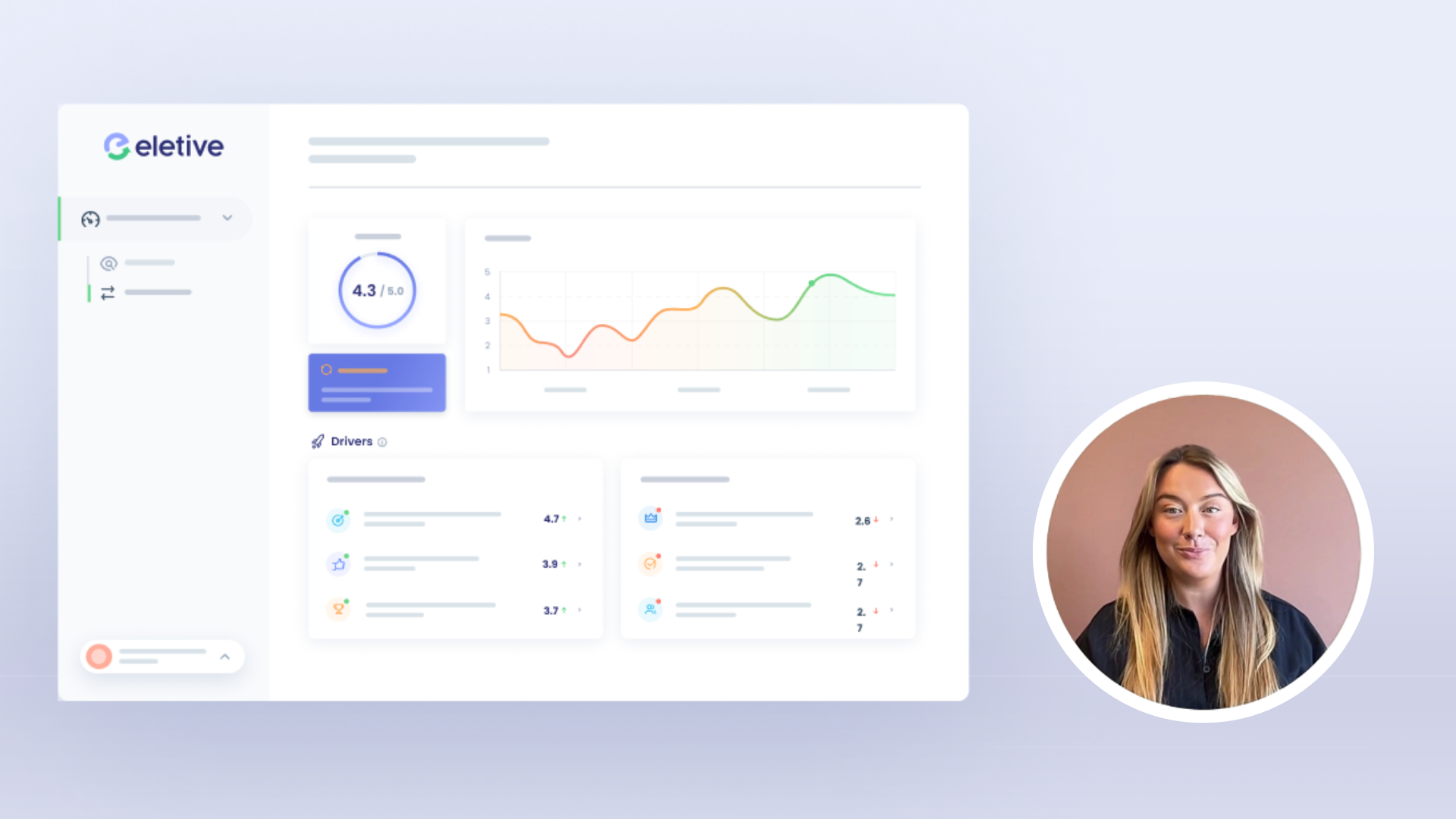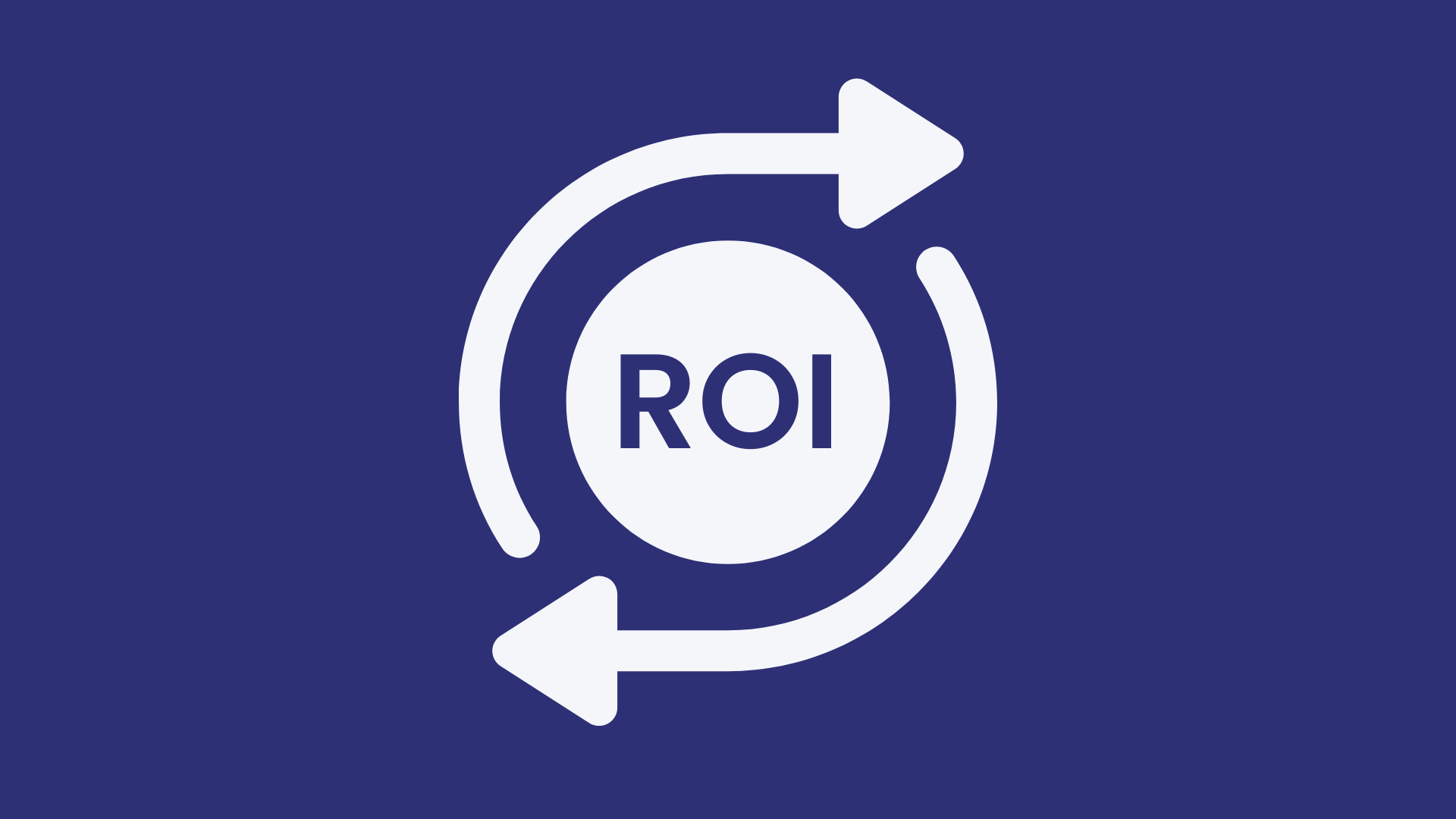360-degree feedback surveys are a powerful tool for both personal and professional growth. Collecting peer feedback, and training managers in 360 coaching, allows organisations to develop employees, teams, and leaders in parallel.
360 feedback: a tool for identifying weaknesses, strengths, and blind spots
360-degree feedback is a holistic performance appraisal system that is based on feedback from supervisors, peers and subordinates to create a comprehensive performance report. It highlights an individual’s strengths and weaknesses, incorporates various points of view, and does it all anonymously.
Whether you’re an employee or manager, identifying your "blind spots" is always a challenge. 360 feedback surveys offer a great way to do that. "Blind spots" can be both behaviours and skills that you may under- or overestimate, where constructive feedback can help you identify areas where you can improve.
Implementing a feedback culture is an important step in creating a high-performing workplace where employees can reach their full potential. Traditionally, the focus of 360 feedback has often been executive coaching and senior leaders. But today, 360-degree feedback is increasingly being used to help all the human capital in the organisation develop their performance. It's also a useful tool for identifying potential leadership candidates and building a strong leadership bench.
Benefits of 360-degree feedback
For employees, 360-degree feedback benefits include:
Boosting morale - Positive reinforcement can do wonders for employees struggling with lack of confidence, burnout, and job confusion.
Identifying skill deficiencies - You can analyse feedback from different people and identify deficiencies in interpersonal skills that can be addressed through frequent training.
Improving employee development plans - Holistic feedback and further analysis can be used to create more effective development goals for individual employees.
Coaching leaders and employees based on 360 surveys results
The key to implementing a successful 360 degree feedback process is to have the right mindset and approach to the surveys and the survey results. For 360 surveys to have the most positive impact, they should be seen as a development tool rather than a performance evaluation tool. It’s essential that everyone in the organisation understands this, and sees the feedback reports as tools for their personal development planning. This view helps create a climate where the feedback is welcomed and embraced, rather than feared.
Related reading: 360 feedback questions with examples
Dos and don’ts in 360 degree feedback coaching
The focus for 360 coaching should always be to help the subject of the survey draw their own conclusions from the feedback they’ve received. The intention is for them to identify their own opportunities for development, rather than telling the m what to make of the feedback.
This requires a coaching mindset, where the focus shifts from trying to quickly solving problems, being curious, asking questions, and exploring different potential ways forward. This approach helps the subject avoid getting defensive, and instead becoming curious and interested in the feedback. Many people tend to get anxious or worried if they receive what they perceive as negative feedback, which is why it’s so important to stress the positive opportunities that hide in all kinds of feedback.
In 360 feedback coaching, you should:
Help the subject define the context for the 360 feedback
Ask the subject open questions to help them identify their strengths and areas of development
Encourage the subject to remain curious and constructive
Encourage the subject to focus on the future and the big picture rather than dwelling on the past or getting stuck in details
Through questions, help the subject analyse and understand the feedback in terms of thematic focus areas
In 360 feedback coaching, you should generally not:
Judge or interpret the feedback the subject has received
Provide your own feedback on them behavior
Attempt to 'fix' or "change" things you perceive as problematic
Ask leading questions or tell the subject how to feel or what to think or do
Give advice or share your opinions
Coaching 360 feedback :format(jpeg)/f/288714721386412/44e1fa287f/namnlo__s_design__5_.jpg)
Eletive offers a powerful 360 feedback tool
Eletive's 360-degree feedback promotes learning and collaboration. The 360 feature is built to help teams and organisations implement a constructive feedback culture. By uncovering learning potential and improving self-awareness, 360 surveys help foster accountability and self-leadership. It can also lead to better overall performance of individuals, teams, and leaders. An important advantage of 360° assessments is that they place a greater focus on the 'how' rather than just the 'what" to improve performance.
Connect 360 feedback survey results to action plans and check lists
Visualise 360 feedback survey on both individual and organizational level
Use 360 survey results to build your leadership bench
Gather 360-degree feedback, 1:1s, action plans and OKRs in the same user-friendly platform, to make it easy for managers and employees to take action on the insights
Eletive – a People Success Platform
Eletive provides a complete platform for anonymous employee feedback, and for all things related to employee engagement and performance management. This includes intelligent employee engagement surveys, an anonymous chat for employees, advanced AI analytics to interpret free-text comments, and a whistleblowing channel, eNPS surveys, and much more.



























:format(jpeg)/f/288714721386412/0f416a4e89/blog-360-feedback-coaching-for-professional-development-hero_media.jpg)
:format(jpeg)/f/288714721386412/1280x720/94229f239a/blog-11-best-people-analytics-tools-in-2026.jpg)
:format(jpeg)/f/288714721386412/e490991a3d/blog-employee-feedback-software-hero_media.jpg)
:format(png)/f/288714721386412/1200x675/4bf26615f3/virtual-hr-event-people-success-2026.png)